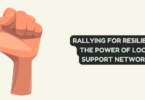
Security
Security awareness isn’t confined to the walls of an office anymore. With the rise of remote work cultures, individuals need to be vigilant about cybersecurity in their own spaces. This article will explore the various facets of security awareness for remote workers, offering practical tips and insights to ensure a secure virtual work environment.
Definition of Remote Work
Remote work, also known as working from home, is the practice of working away from a regular office setting. It has become increasingly prevalent, allowing individuals to work from the comfort of their homes or any location with internet connectivity.
Rise in Remote Work Culture
The global shift towards remote work has been accelerated by technological advancements, changing work dynamics, and the need for flexibility. As more people embrace this lifestyle, it becomes crucial to address the security challenges associated with remote work.
The importance of Security Awareness for Remote Workers
Security awareness is not only an organizational concern but also an individual responsibility. Remote workers must be equipped with the knowledge and practices to protect themselves and their employers from potential cybersecurity threats. Organizations should invest in comprehensive security awareness training for employees, empowering them with the knowledge and skills necessary to navigate the intricacies of remote work securely
Common Security Threats
Phishing Attacks
Phishing remains a prevalent threat in the digital landscape. Remote workers should be adept at recognizing and avoiding phishing attempts, especially through emails and other communication channels.
Unsecured Wi-Fi Networks
Working from various locations means connecting to different Wi-Fi networks. Understanding the risks of unsecured networks is essential to preventing unauthorized access and data breaches.
Device Security Concerns
The security of devices used for remote work is paramount. From laptops to smartphones, ensuring that devices are protected against malware and unauthorized access is a fundamental aspect of remote security.
Tips for Secure Remote Work
Strong Password Practices
The first line of defense in the digital realm is a robust password. Remote workers should not underestimate the power of a strong, unique password for each account. Incorporating a mix of uppercase and lowercase letters, numbers, and special characters creates a formidable barrier against unauthorized access. It’s not just about complexity; uniqueness is equally vital. Reusing passwords across multiple accounts can pose a significant risk, as a breach in one account could compromise others. Regularly updating passwords, at least every three to six months, enhances security and reduces the likelihood of unauthorized access.
Utilizing Virtual Private Networks (VPNs)
In the era of remote work, Virtual Private Networks (VPNs) stand as guardians of online privacy and security. These tools encrypt internet connections, turning them into secure channels for data transmission. For remote workers accessing company networks or sensitive information, especially from public Wi-Fi locations, VPNs are non-negotiable. They create a secure tunnel, preventing potential eavesdropping and unauthorized access. Choosing a reputable VPN service ensures not only security but also anonymity, safeguarding remote workers from various online threats.
Regular Software Updates
Regular updates serve as a proactive defense mechanism against potential security vulnerabilities. Developers constantly refine and patch their software in response to emerging threats. Failure to update leaves systems susceptible to exploitation. Remote workers should adopt a routine of checking for and installing updates promptly. This practice extends beyond operating systems to include applications, antivirus programs, and any other software in use. The extra time invested in staying up to date pays off in enhanced security and a reduced risk of falling victim to cyber threats.
Two-Factor Authentication (2FA)
In the realm of cybersecurity, Two-Factor authentication (2FA) is akin to adding a deadbolt to the digital door. Implementing 2FA goes beyond relying solely on passwords for account access. This security layer requires users to provide two forms of identification, typically something they know (like a password) and something they have (like a mobile device). Without the second authentication factor, even if a password is compromised, unauthorized access is prevented.
For remote workers, especially those handling sensitive information, enabling 2FA across all applicable accounts provides an additional and invaluable defense against unauthorized access attempts.
Secure Wi-Fi Practices
While a VPN can secure the connection, the foundation lies in the security of the Wi-Fi network itself. Remote workers should ensure their home Wi-Fi networks are protected with strong, unique passwords. Using WPA3 encryption, if available, adds an extra layer of security. It’s also advisable to change the default router login credentials to prevent unauthorized access. Regularly monitoring connected devices and enabling network encryption contribute to a robust defense against potential Wi-Fi-related security threats.
Final Thoughts
Security awareness for remote workers is a multifaceted endeavor encompassing technical measures, individual practices, and organizational policies. By staying informed, adopting best practices, and prioritizing mental well-being, remote workers can contribute to a secure virtual work environment.
FAQs
Is remote work more susceptible to security threats?
While remote work opens new avenues for security threats, awareness and proper measures can mitigate risks effectively.
How often should remote workers update their passwords?
Passwords should be updated at least once every three to six months to improve security.
What role do collaboration tools play in remote security?
Secure communication platforms with encryption features are crucial for maintaining confidentiality during remote collaboration.
How can organizations support the mental health of remote workers?
Providing resources and counseling services, and fostering a supportive work culture are essential for remote workers’ mental well-being.
Why is continuous learning important for remote workers in terms of cybersecurity?
Continuous learning ensures that remote workers stay abreast of evolving cyber threats, enhancing their ability to protect against new challenges.






